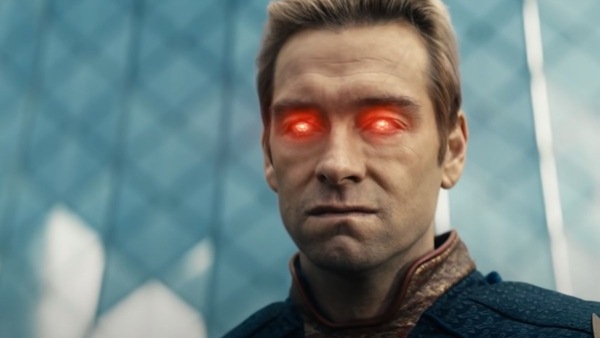The rise of the anti-Superman: How Amazon Prime’s The Boys is redefining the superhero genre
The iteration of an evil version of the famous DC superhero, Superman, is becoming a widely accepted trope

Last Updated: 06.38 PM, Sep 15, 2021
When Alan Moore wrote Watchmen in the ’80s, he revolutionised the superhero genre. The critically acclaimed graphic novel challenged the idea of what symbolises a superhero.
For years, a superhero was always a character created by the template set by Superman in the early 20th Century. Of course, there have been darker takes on certain characters such as Batman, Daredevil, and Wolverine. But ultimately, all of these characters had a very clear sense of right from wrong. Moore’s characters from Watchmen, however, were deeply flawed. Adrian Veidt/Ozymandias, billionaire philanthropist and respected member of the society turned out to be a genocidal maniac; Edward Blake/The Comedian, one of the heroes of the Vietnam War is secretly a sadist and a sexual predator; and finally, Walter Kovacs/Rorschach, the self-righteous hero of the story has been scrutinised for years, with readers and scholars deliberating as to whether the character shared white supremacist political views which aligned with the Ku Klux Klan (KKK).
In fact, the 2019 sequel TV show depicts his followers, the Seventh Kavalry, to have embraced the ideology of hypernationalism in line with some of Ayn Rand’s philosophies. The idea is that superheroes can embrace flawed ideologies just like any other person on the planet, similar to those who have absolute faith in populist leaders.
While Alan Moore’s Watchmen is a complex narrative with several layers of subtext, The Boys, on the other hand, is a blunt yet intelligent satirical dark-comedy attacking the very idea of a superhero. It is a metaphor for how people create these ideas about powerful individuals and put them on a pedestal so high that they can never be brought down. The famous superheroes in the show, The Seven, led by the powerful Homelander (Antony Starr) is a symbol of all that is good. The people love him, the press loves him, and even multi-million dollar corporations love him. It’s hard not to swoon over someone who looks like Captain America, has the abilities of Superman, and is presented as a saviour. His image is protected by a well-oiled PR machinery bankrolled by the company known as Vought, who have commercialised superheroes into a billion-dollar industry. Homelander is, in fact, a mass-murdering psychopath put on a leash by Vought industries.
The show is based on a graphic novel by Garth Ennis and Darick Robertson and has deconstructed the holier than thou image of a superhero. While the Watchmen did discuss such themes, no other story has reimagined the so-called ‘superheroes’ of a particular universe as the antagonists like The Boys have done. The real heroes of the story are Billy Butcher (Karl Urban), Hughie Campbell (Jack Quaid) and the rest of the ragtag group of individuals called the Boys, seeking justice for the loved ones they have lost at the hands of The Seven. Billy Butcher embodies the brute violence and witty humour of the show, while Hughie represents the ignorant being woken up from a slumber of oblivion. At its core, it is a clever political satire critiquing the far-right movement that has swept across the globe in recent times. In fact, the second season did not even attempt to hide it beneath layers of allegories and symbolism - the show quite literally had a Nazi as the main villain for season two.
The popularity of the show is undeniable; only Netflix originals such as Cobra Kai and Lucifer were ahead in viewership figures during the weeks of its release last year, according to the Nielsen viewership figures. The trope of the anti-superhero or the anti-Superman has definitely turned heads and is gaining popularity. Omni-Man, from another hit Amazon Prime show, Invincible (2021), is also based on an older version of Superman. Even though the trope was brought to the limelight because of the success of The Boys, it is not unprecedented.
Justice League the Animated Series depicted an authoritarian Superman who declares himself as a global leader in an alternate timeline. In the animated film Justice League: Crisis on Two Earths, a version of Superman called Ultraman is depicted as the leader of an evil organisation called the Crime Syndicate. There is also the James Gunn film called Brightburn which revolves around an adolescent ‘superman-esque’ character who is mentally deranged. Even Rocksteady’s highly anticipated upcoming video game, Suicide Squad: Kill the Justice League, features a mind-controlled evil-Superman. An evil version of Superman was also hinted at in the ‘Knightmare sequences’ in Batman v Superman: Dawn of Justice and Zack Snyder’s Justice League.
There is enough evidence to suggest that there is an audience for this trope. The idea that a Godlike being turning evil, who once represented all that is good in the world, is a frightening prospect. It is something that makes for great storytelling, to have the most powerful being in the world as a supervillain. The announcement of the animated Injustice film, based on the record-breaking video game series of the same name, is a testament that the trope is here to stay. The Injustice storyline, which has its own prequel comic book series as well, is the most popular iteration of a villainous Superman. Even though Homelander from The Boys has become a very popular character in the last couple of years, it is incomparable to the original. Injustice is releasing on October 19, while there has been no official confirmation regarding the release of the third season of The Boys.

